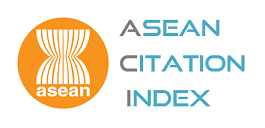MIGRATION OF WOMEN – SOCIAL ISSUES NEED TO CONCERN IN THE RURAL REGION OF THE MEKONG DELTA, VIETNAM
Keywords:
livelihood, Mekong Delta, migrant workers, migrant women, population structureAbstract
This article describes an overall picture of the migration process and the change in the population structure, the division of labor in the family, and the traditional role of emigrating women spatially and temporally over the past decade (2009-2019). By combining analysis of previous related research reports and qualitative research methods, the research results show that the causes of the change in the population structure in the Mekong Delta region are the process of industrialization and modernization of the country along with the partial impacts of climate change. These trends have adversely affected the economic life of a fraction of people in rural areas in the Mekong Delta and forced the unemployed workers in rural areas to leave their hometowns in search of new sources of livelihood, especially female workers. Migration has changed the population structure in rural families and led to social problems, particularly changes in the division of labor in families with migrant women causing increased burden to families and reduced care for the elderly and children remaining at home.











